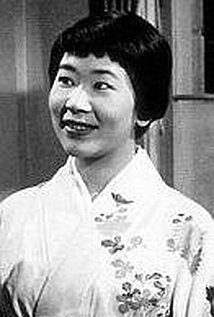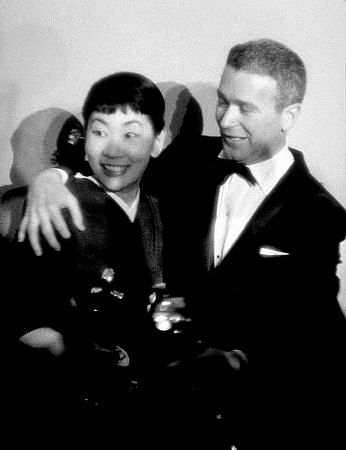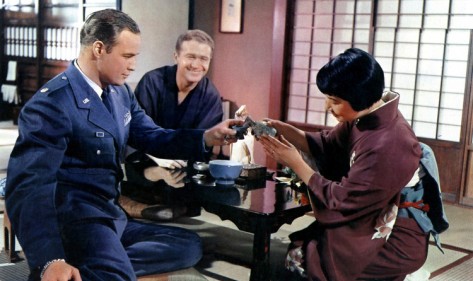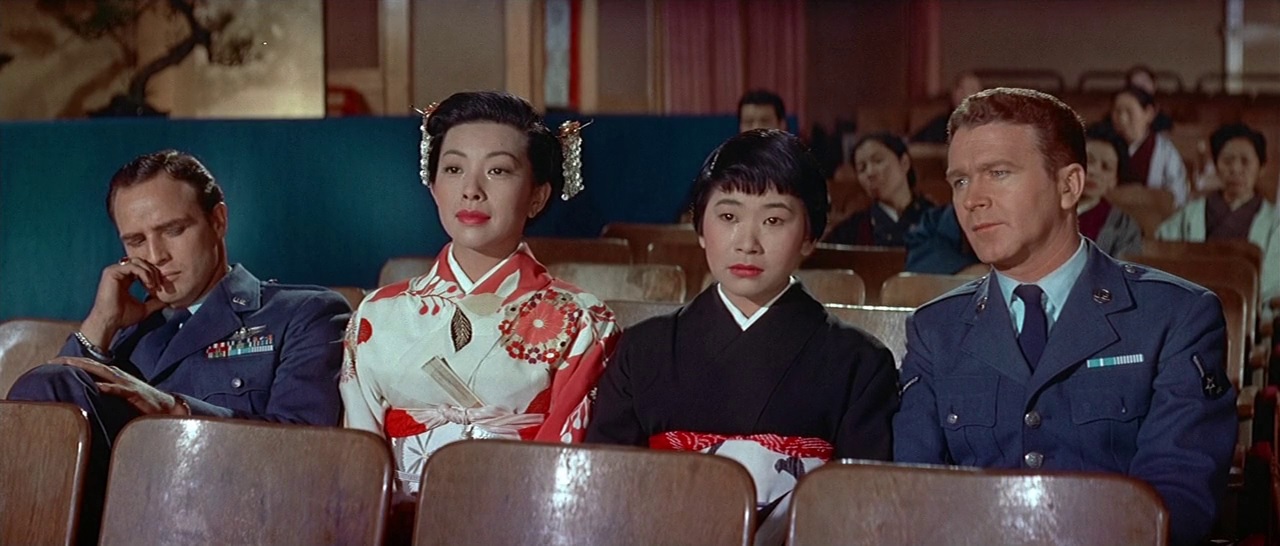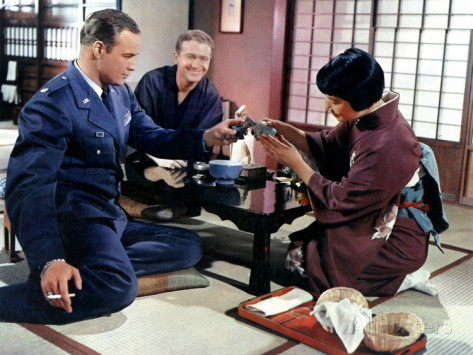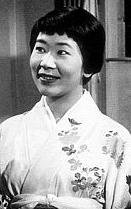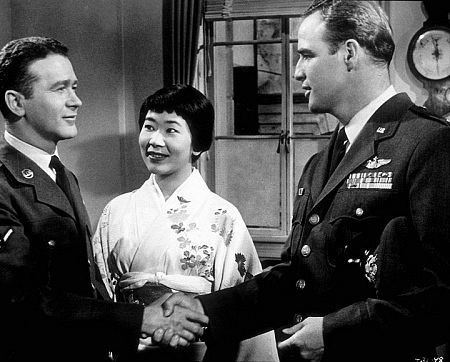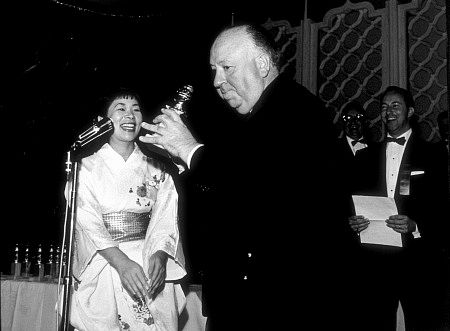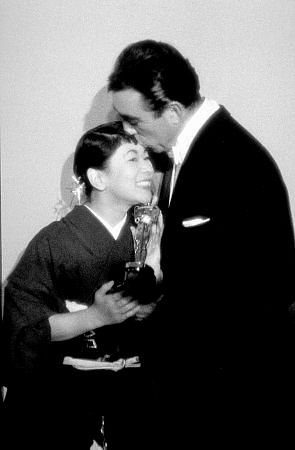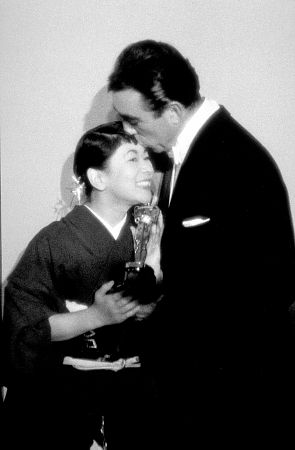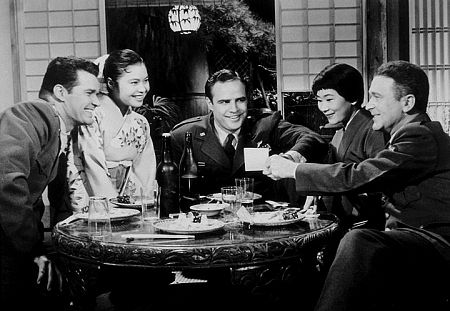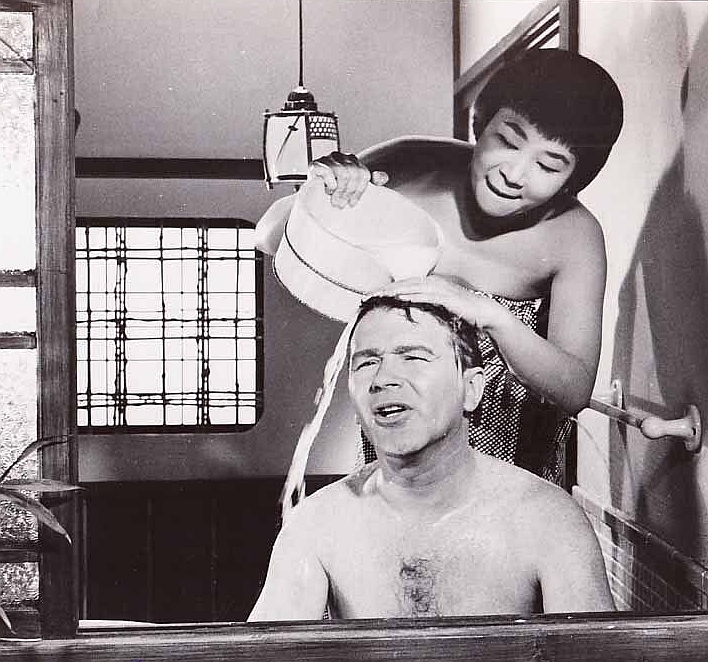Although she projected the typical Japanese female stereotype of humbleness, delicacy and subservience in most of her prime film and stage roles, beguiling, tiny-framed Miyoshi Umeki was nevertheless an assertive scene-stealer. This docile and deceptive-looking talent with the cropped hair and heart-shaped face radiated charm and innocence so effor...
Show more »
Although she projected the typical Japanese female stereotype of humbleness, delicacy and subservience in most of her prime film and stage roles, beguiling, tiny-framed Miyoshi Umeki was nevertheless an assertive scene-stealer. This docile and deceptive-looking talent with the cropped hair and heart-shaped face radiated charm and innocence so effortlessly, she managed to make history at Academy Awards time as the first Asian performer to receive an acting Oscar for her superb work in the tragic post-WWII film drama Sayonara (1957).Miyoshi Umeki was born on May 8, 1929, in Otaru on the large northern island of Hokkaido. The daughter of a prominent Japanese iron factory owner and the youngest of nine children, she developed an early passion for music and learned to play the mandolin, harmonica and piano. She also enjoyed singing American-styled tunes much to the chagrin of her parents. This propensity for Americanized pop songs later paid off.Following WWII she traveled with a U.S. Army G.I. jazz band in Japan as Nancy Umeki and was the first to record American songs, for RCA Victor Japan, in her homeland. She became an extremely popular radio and nightclub artist which triggered a move to the United States in 1955. Again, the diminutive vocalist demonstrated a demure prowess for gaining attention with her one-season regular role (1955-1956) on the musical variety show Arthur Godfrey and His Friends (1949). With that popularity, she was able to sign with Mercury Records and eventually released two albums.The timing couldn't have been more perfect. From this recognition she was immediately cast in the Marlon Brando/Miiko Taka starrer Sayonara (1957) based on James A. Michener's best-selling romantic tale. She had made a minor movie debut a few years earlier in a Japanese musical. Inspired casting opposite comedian Red Buttons in a tragic, counterpoint romance as a WWII airman and his naive Japanese war bride who fall victim to post-war prejudice led to supporting Academy Awards for both actors. Despite her win, she would not make another film for four years.Following this Oscar-winning endeavor, Umeki conquered Broadway with the 1958 musical Flower Drum Song in which she proved a highlight as a starry-eyed Chinese immigrant / mail-order bride with her captivating rendition of A Hundred Million Miracles, earning a Tony nomination in the process. She scored additional points after recreating her role for the film version of Flower Drum Song (1961).Ms. Umeki made only five American films in all. Her other appearances were support roles in the naval comedy Cry for Happy (1961) in which she and her "Sayonara" co-star Miiko Taka were paired with Glenn Ford and 'Donald O'Connor'; the Jim Hutton / Paula Prentiss service comedy The Horizontal Lieutenant (1962); and the Laurence Harvey / France Nuyen racial drama _Girl Named Tamiko, A (1963)_. She also tread fairly lightly on TV with random 60s appearances on _"Donna Reed Show, The" (1962)_, Dr. Kildare (1961), Rawhide (1959) and Mister Ed (1958), among others.Duing the 1950s and 1960s, Umeki was an occasional guest on variety shows for such TV titans as Perry Como, Dinah Shore, Merv Griffin, Andy Williams and Ed Sullivan. Arguably her biggest claim to fame was as Mrs. Livingston, the housekeeper and quiet pillar of strength to a widower and his young son, in the heart-tugging TV comedy The Courtship of Eddie's Father (1969). Following this renewed attention, Umeki went into a complete self-imposed retirement.She lived a predictably sedate family life for better than three decades. Her 1958 marriage to TV producer/director Win Opie ended in divorce after 9 years. She subsequently married TV director Randall Hood in 1968 and the couple ran a business renting editing equipment to film studios and university film programs until his sudden death in Los Angeles in 1976. A longtime resident of North Hollywood, she eventually moved to Missouri with advancing age to be nearer to her son and his family. She died of cancer at age 78 on August 28, 2007, at the Licking Park Manor nursing home in Licking, Missouri.
Show less «

